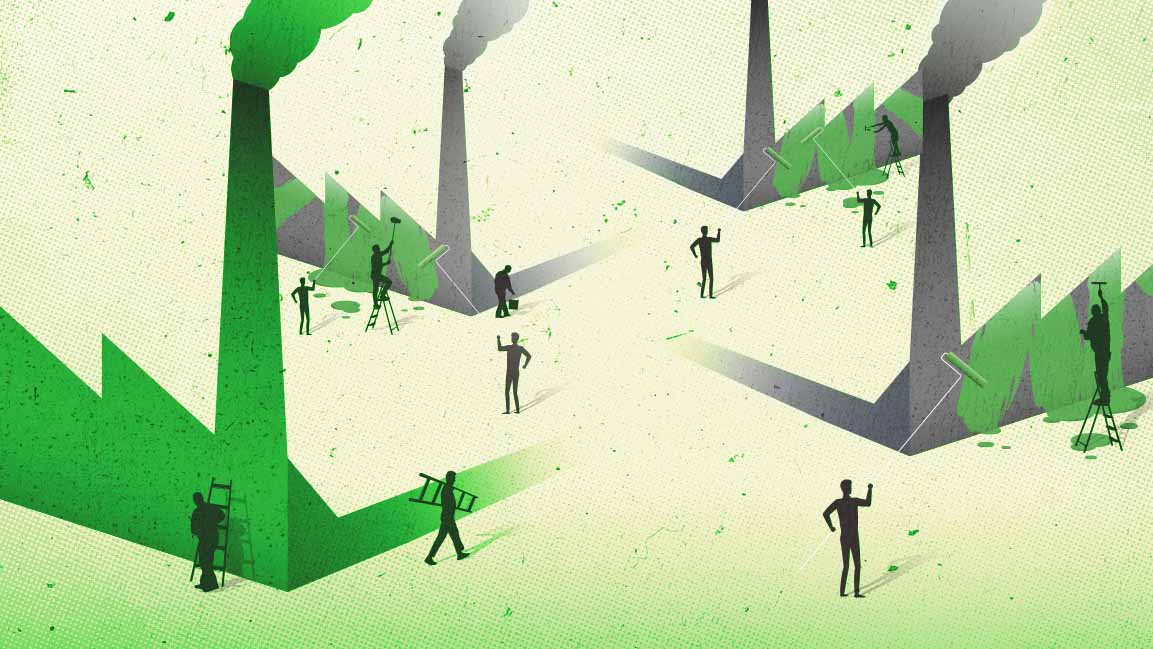- | 10:00 am
Will COP28 deliver real climate change progress, or will history repeat itself?
Population growth, energy needs, water stress, and food production are linked with climate change. Experts emphasize the need for comprehensive and integrated strategies

As COP28 talks head into the final phase, a question persists: Can nations actualize the ambitions outlined in this year’s climate change summit?
Over time, COP gatherings have faced scrutiny for governments’ failure to meet set objectives or make substantial advancements.
Prior summits aimed to stabilize greenhouse gas levels, bolster financial aid for developing nations, attain global net zero by 2050, and strive to limit warming to 1.5 degrees Celsius. Yet, realizing these goals remains a distant prospect, casting doubt on their imminent attainment.
In 2021, COP26 faced backlash for falling short of its primary objective: upholding the Paris Agreement’s mandate to cap global warming at 1.5°C (2.7°F) above pre-industrial levels.
Despite calls from COP26 President Alok Sharma to relegate coal power to history, the conference did not witness this transformation. While the Glasgow Climate Pact advocated for a “phase-down” in coal usage, nations reliant on coal signaled their intent to continue using it until at least the 2040s.
COP27 also drew criticism for its inability to meet green finance targets. The summit’s shortcomings extended to the lack of emphasis on equitably distributing green finance, notably to the most vulnerable countries and those grappling with armed conflicts—a segment consistently neglected in climate aid discussions.
Will COP28 be different even as it faces criticism over fossil fuel influence?
PROGRESS MADE, BUT NOT ENOUGH
Dr. Yahya Anouti, Partner and Sustainability Leader at Strategy& Middle East, says nations’ progress towards meeting climate goals hasn’t been as expected.
“PwC’s Net Zero Economy Index emphasizes the urgent need for a daunting decarbonization rate of 17.2% annually until 2050 to limit global warming to 1.5°C. This rate is seven times faster than current levels,” says Anouti.
“We must take immediate action as the current rate of carbon consumption will deplete our century’s carbon budget in the next ten years if nothing changes,” he adds.
Anouti explains a substantial discrepancy in mitigation efforts, with current global emission trends deviating from the required path to limit the global temperature rise to 1.5°C. Simultaneously, adaptation measures for climate change lag behind necessary levels.
Dina Storey, Sustainability and Climate Change expert and Senior Partner at Marfa Advisors, says that strides and positive developments that have been made are not as substantial as needed.
She cites a UN Climate Change report published in November, revealing that national climate action plans fall short of effectively limiting global temperature rise to 1.5 degrees Celsius, per the Paris Agreement’s objectives.
Storey says the overall emission trends are not declining rapidly enough despite some countries making headway. “By 2030, we expect emissions to be just 2% below 2019, a clear sign that emissions are peaking, but not at the necessary pace. Moreover, commitments are set to increase emissions by around 8.8% relative to 2010 levels.”
“While there is recognition of countries formulating net-zero plans and an accelerating shift toward clean energy, the pace of this transition is insufficient to meet required targets. In reality, governments are taking only modest steps to address the climate crisis, which calls for far more assertive and bolder actions.”
CHALLENGES FACING NATIONS
Anouti highlights nations’ obstacles in achieving their COP objectives, framing the struggle within a Middle Eastern context: “This region has grown – in economic terms – 90-fold in the last 50 years. However, this has come at a cost, creating some of our biggest challenges.”
He refers to the region’s rapid development since the discovery of oil has “added increased pressure to a region already vulnerable to the effects of climate change.”
Temperatures in this region are rising twice as fast as the global average. With only 1% of the earth’s total renewable water sources, the Middle East is the most water-stressed region in the world.
This has strong implications for food security and the sustainability of livelihoods. The Middle East imports more than 80% of its food. In several cities, air pollutants are more than ten times the level the World Health Organisation considers safe.
Anouti points to barriers businesses face when implementing sustainable practices, hurdles mostly set in place by governments, and regulatory restrictions. He cites PwC’s 2023 Middle East Climate Tech report, where climate tech innovators say that complex regional legal and regulatory environments, funding limitations, and finding experienced talent are among their biggest challenges for growth.
Storey outlines two significant obstacles that heavily impact our progress in addressing related issues. The first revolves around the future role of fossil fuels, also heavily discussed at this year’s COP.
“Despite COP26’s agreement to phase-down coal use, there’s no consensus on completely abandoning all fossil fuels. The decision on this matter is crucial, as it will greatly influence our future climate action strategies and policies.”
The second hurdle involves urgent financial assistance for developing nations, which is crucial for adapting to intensifying climate impacts and shifting from polluting energy sources to cleaner alternatives. “They require a minimum of $200 billion annually by 2030 to adapt to worsening climate impacts and transition to clean energy sources.”
She also lists population growth, energy needs, water stress, and food production as challenges entangled with climate change. “There is also the risk of exceeding global warming thresholds. The current trends suggest that the world is on track to exceed 2°C global climate warming by 2060.”
Storey emphasizes the need for comprehensive and integrated strategies. “The success in addressing these issues will not only shape our climate action effectiveness but also define our resilience and adaptability in the face of climate change.”
THE ROLE OF BUSINESSES AND INDIVIDUALS
Storey emphasizes the role of businesses in upholding sustainability through innovations in eco-friendly offerings, waste reduction, and the adoption of renewable resources.
Additionally, she underscores the importance of educating consumers on the environmental impact of their choices. Storey advocates individual support for sustainability by opting for ethically sourced, eco-friendly products, adopting mindful consumption habits, minimizing waste, and prioritizing recycling.
“The shift towards sustainable consumption and production is a shared responsibility that necessitates leadership from businesses and active participation from individuals. This collaboration is vital for reducing our environmental footprint and steering towards a more sustainable future.”
Anouti reaffirms these ideas, emphasizing the crucial role of public-private partnerships in fostering the widespread embrace of sustainable practices and aiding nations in achieving their COP objectives.
“These partnerships allow for the exchange of expertise, data, and best practices, and governments can often benefit from private sector insights on emerging trends, technologies, and business models. Meanwhile, private sector companies can better understand regulatory expectations, societal needs, and how best to respond to these.”
URGENT NEEDS
Dr. Mahmoud Mohieldin, UN Climate Change High-Level Champion for COP27, underscores the imperative of genuine financial support. Devoid of adequate financial backing, economies struggle to mitigate environmental disasters, bridge the adaptation gap, or enhance their resilience.
Mohieldin says developing countries “face a triple injustice,” despite contributing least to its causation, they bear the brunt of climate change’s human toll and face the highest financial burden to combat its repercussions.
He says emerging markets and developing nations are projected to necessitate approximately $2.4 trillion annually by 2030 to facilitate the transition—a sum unattainable solely through government funding.
Storey says strengthening accountability and transparency in net-zero pledges is “paramount” and moving beyond promises to concrete climate action. Carbon dioxide removal solutions and just transition must be prioritized, along with financial reform and support for workers and communities leaving fossil fuels.
She explains reaching global temperature targets “necessitates deeper near-term emissions reductions than those currently outlined in National Determined Contributions.”
“We must address these multifaceted challenges with a sense of urgency and a commitment to working together across nations and sectors. The path ahead is complex, but with collective effort and dedication, we can make significant strides in combating climate change and protecting our planet for future generations.”
Anouti also discusses several pressing issues that demand attention, including unlocking patient financing to accelerate new technologies such as adopting AI, CCUS, Data Analytics Centre (DAC), and other emerging technologies.
He also mentions the need for policy and regulatory frameworks enabling transparent markets. “In the Middle East, there is a need for a green charter that brings together all the current incentives and green infrastructure investments under one umbrella. That will be critical to monetize the region’s green competitive advantage and unlock the hydrogen economy and green manufacturing.”
Finally, there’s a need for building the skills for sustainable development. “Addressing these critical areas is vital not just for meeting climate goals but also for ensuring a sustainable, resilient future,” Anouti says.








































